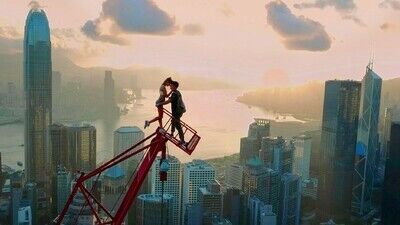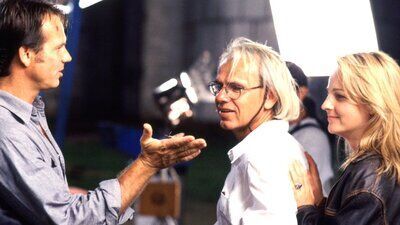Born in Elgin, Illinois, Shales worked as an editor at The Washington Examiner before getting hired as a writer for The Washington Post‘s Style desk in 1972. Five years later, he was named TV critic. His default voice was that of a skeptical midwestern curmudgeon who could be roused to righteous ire when confronted with a program he found creatively lackluster or morally repulsive.
Panning the 1987 miniseries “Napoleon and Josephine,” Shales wrote that costar Anthony Perkins’ eyes were “perpetually popped open through the whole thing, as if Mama Bates has just rushed out of the fruit cellar with her butcher knife again.” He called late night host Jimmy Kimmel “”a living monotone in most conceivable senses of the word,” dismissed the entirety of Comedy Central as “a pantingly desperate cable network,” and was one of a handful of TV critics to generally dislike “Seinfeld,” for what he saw as its gratuitous coldness and meanness, its reliance on ethnic stereotypes, and self-loathing attitude towards Judaism. “What ‘Seinfeld’ has helped spread through network television is darkness, that seemingly most valuable of contemporary qualities, the thing that some sophisticated viewers find a redeeming quality for otherwise undistinguished pop,” he wrote in a piece that ran in advance of the series finale, adding that he considered Seinfeld himself “a tremendously uninteresting, empty-headed man for someone who makes his living by his wits.” At National Public Radio, where Shales delivered on-air reviews of movies for two decades, he coined a memorable phrase to describe the over-scaled, increasingly digitized action in superhero movies: “huge things crashing into other huge things.” (He was reviewing 1997’s “Batman and Robin.”)
But Shales could be generous, even ecstatic, when he came across a TV program or movie that he thought had been made with intelligence, care, and a sense of showmanship. He praised “Twin Peaks,” “The Sopranos,” “NYPD Blue,” “The Wire,” “Cheers” and many other series that are now considered permanent fixtures in the pantheon, as well as some outliers that he thought should have been more widely recognized for their excellence, such as “Cold Case,” “Mystery Science Theater 3000,” and “Scrubs.” In 1977, Shales reviewed a then-new movie called “Star Wars” for National Public Radio and called it “… casually profound. In an atmosphere of seemingly groundless escapism, it worships the air we hang in. Without ever stopping for a breath, much less the making of a statement, ‘Star Wars’ celebrates that portion of the human brain that is shared by the brilliant and the stupid.” He called “Jurassic Park” “the greatest monster movie since ‘King Kong'” and praised it as “a technological triumph about technology run amok.”
Shales carried the history of two mediums around in his head, and could access them in an idiosyncratic, personal, pre-Internet style—one that made it clear that he really knew what he was talking about, and had actual books in his possession, and wasn’t just Googling titles and grabbing the first factoids that popped up. In one of the last big pieces Shales wrote before stepping down from the Post in 2010, a consideration of “Dancing with the Stars,” “America’s Got Talent” and other performance-driven competition shows, Shales gave readers a thumbnail history and analysis of the importance of music in the early years of TV, citing not just “The Ed Sullivan Show” and “Hollywood Palace” but “Ted Mack’s Original Amateur Hour” and “Arthur Godfrey’s Talent Scouts.” Writing on the singularly odd energy of talk show host Tom Snyder—a hero of David Letterman—Shales wrote, “The Snyder we saw on TV was not a replica of the real guy; it was the real guy.”







Leave feedback about this